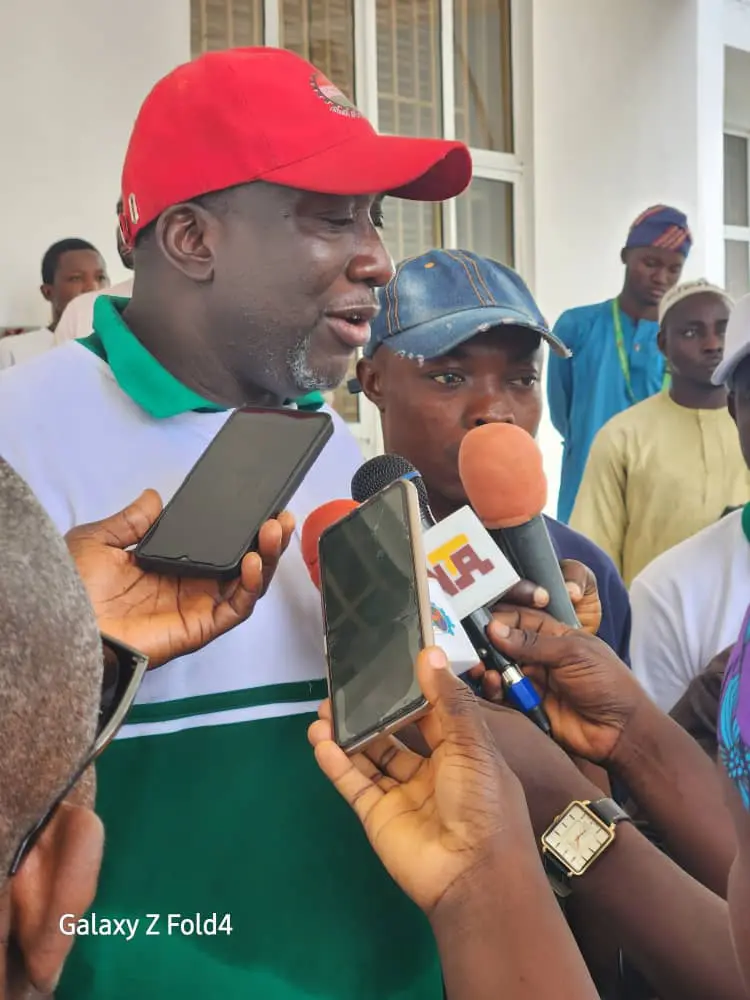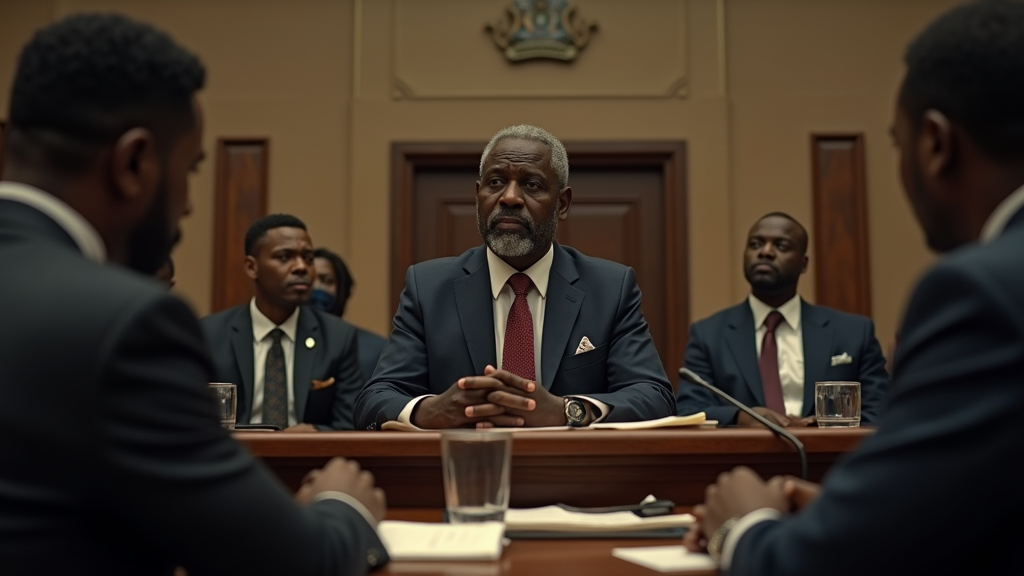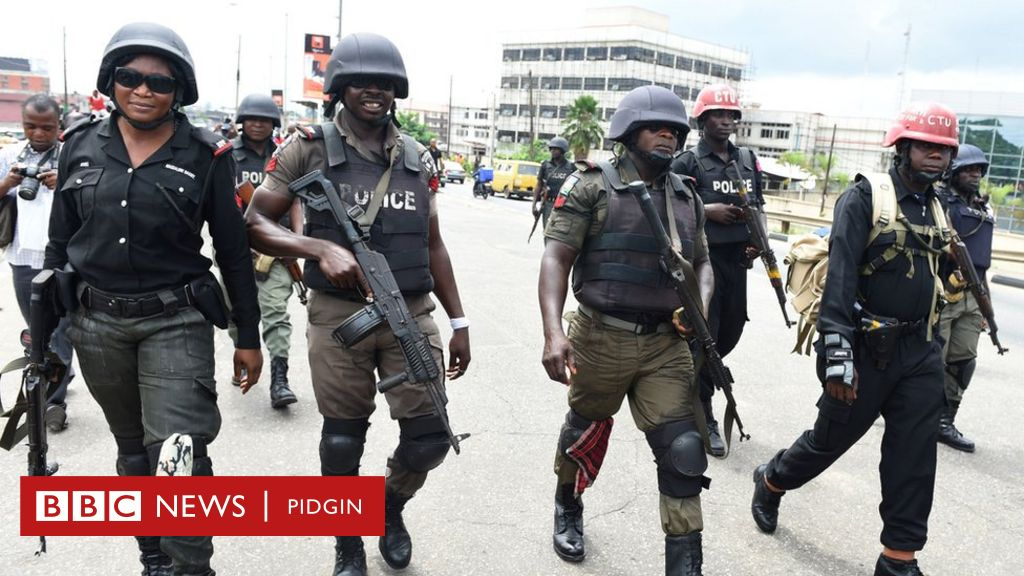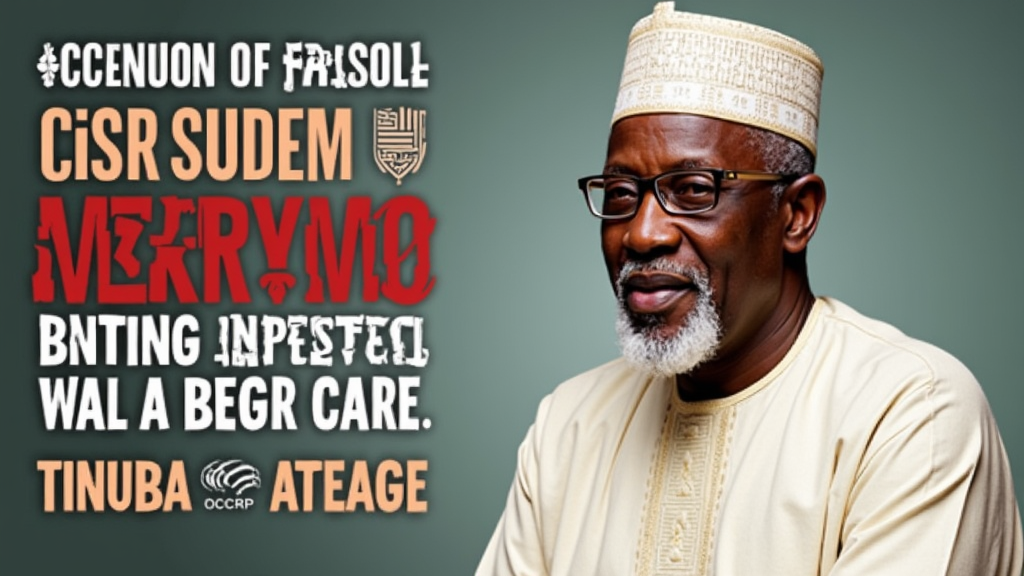In the midst of mounting tension and political drama in Niger politics, Niger Deputy Governor Garba has firmly dismissed rumors of his impending resignation. Amid a growing rift with Governor Bago, fueled by accusations of political marginalization within the All Progressives Congress (APC), Garba’s stance is clear: he is not stepping down from his role as deputy governor. As the dynamics shift ahead of the November 2025 local government elections, these rumors have intensified discussions in Niger State news circles. The situation escalates with whispers of discontent among Garba’s supporters, who have been vocal about their grievances concerning the exclusion of their preferred candidates from the APC consensus list. With Governor Bago recently back from an overseas trip, the political landscape in Niger remains fraught with uncertainty, but Garba’s denial has added a twist to the unfolding narrative of Niger’s political arena.
Recently, the political atmosphere in Niger State has been charged with speculation and unrest, particularly concerning the actions of the state’s deputy leader, Yakubu Garba. Known for his involvement in the All Progressives Congress, Garba finds himself at the epicenter of a brewing conflict with Governor Mohammed Umaru Bago. This discord is attributed to claims of being sidelined politically and dissatisfaction following recent appointments within local governance structures, which have notably affected Garba’s allies. With local elections on the horizon, the implications of such rifts could be significant, prompting public interest and debate. Hence, the ongoing saga of Garba rejecting resignation rumors adds another layer to the intricate web of Niger politics.
Niger Deputy Governor Garba Speaks Out on Resignation Rumors
In a recent statement, Niger State Deputy Governor Yakubu Garba firmly refuted claims about his potential resignation amid rising tensions with Governor Mohammed Bago. The ongoing feud, which many in Niger politics attribute to political marginalization within the ruling All Progressives Congress (APC), has sparked widespread speculation regarding Garba’s future in office. He emphasized, “I am not resigning as speculated. If there’s anything to the contrary, I will let the public be aware,” signaling his intent to remain in his position despite the pressure from internal party dynamics and alliances.
Garba’s declaration comes at a pivotal moment for Niger State as the political landscape heats up ahead of the November 2025 local government elections. Political insiders have suggested that the Deputy Governor’s supporters feel sidelined following the governor’s decisions impacting party nominations, leading to accusations of favoritism towards other political figures. The denial of resignation reflects elements of loyalty and resilience amidst a charged political atmosphere, as challengers within the APC seek to reposition themselves ahead of the forthcoming elections.
The Rift Between Governor Bago and Deputy Governor Garba
The troubled relationship between Governor Bago and Deputy Governor Garba has been under scrutiny since both officials took office in May 2023. Initially perceived as a strong partnership, the dynamics shifted dramatically with reported conflicts over governmental decisions and party representation. Allegations of a secret recording where Garba criticized Bago further fueled tensions, creating a rift that many observers in Niger politics believe could impact both leaders’ prospects.
Recent events have exacerbated the situation, particularly with the governor’s unexpected decision to replace Garba’s chosen candidate for the Shiroro Local Government chairmanship, prompting protests from Garba’s supporters. These actions have led to significant discontent among party loyalists, highlighting the fractures within the APC. The ongoing struggles reflect a broader narrative of governance challenges in Niger State, raising questions about the future cohesiveness of the ruling party.
Political Tensions Ahead of the 2025 Local Government Elections
As Niger State approaches the pivotal local government elections scheduled for November 2025, political tensions have become increasingly pronounced. The struggles between Deputy Governor Garba and Governor Bago are emblematic of the challenges faced by the All Progressives Congress (APC) at this critical juncture. Speculation about Garba’s possible resignation comes amid fears that his diminished status could lead to a divisive electoral season for the party.
With allegations that Garba’s budget and responsibilities have been significantly reduced, many within the APC are concerned about the implications for party unity. Conversations about leadership loyalty and factionalism become even more vital as upcoming elections loom. Political analysts note that how Bago and Garba navigate this turmoil will likely determine the electoral fortunes of the APC in Niger State, making it an essential watchpoint as both leaders seek to consolidate their power.
Public and Media Reaction to the Ongoing Dispute
The public and media response to the lingering dispute between Governor Bago and Deputy Governor Garba has been a mix of intrigue and concern. Media reports have highlighted the intensity of the situation, following the grievances and protests from Garba’s supporters. Statements from key figures within the APC and reactions from political analysts illustrate a growing anxiety over the potential fallout from this internal conflict. The implications could extend beyond mere party politics, resonating throughout Niger State’s governance.
Social media platforms have seen an uptick in discussions surrounding the conflict, with citizens expressing polarized views regarding the capabilities and future of both leaders. Some supporters argue for the necessity of Garba’s leadership style while others defend Bago’s choices as principled decisions for party cohesion. This ongoing debate signifies not only the public’s investment in the political wellbeing of Niger State but also reflects the larger narrative of governance challenges faced within Nigeria’s vibrant political landscape.
Implications of Garba’s Public Denial for Niger State Politics
Deputy Governor Garba’s public denial of resignation amid political tensions holds significant implications for the political landscape of Niger State. By taking a firm stance against rumors, Garba is not only addressing concerns about his political longevity but also signaling to the electorate that he’s committed to leading through adversity. This strategy may bolster his image among supporters who value resilience and accountability in leadership during challenging times.
Garba’s assertion serves as a rallying point for his constituents, particularly as the local government elections approach. His position within the APC could redefine power dynamics and allegiances as party members reassess their commitments. Political analysts suggest that such decisive communication might encourage a more unified front among Garba’s supporters and potentially reshape how the APC strategizes for the elections in light of existing rivalries.
The Role of Protests in Influencing Political Narratives in Niger
The protests that have erupted in response to the alleged political marginalization of Deputy Governor Garba exemplify how grassroots movements can shape political narratives in Niger State. Demonstrations by Garba’s supporters reflect underlying discontent not just with leadership decisions but also a desire for active participation in political processes. These events indicate the growing engagement of citizens in local governance matters, transcending typical party lines as they advocate for their chosen leaders.
Such protests serve as a crucial barometer for the political climate leading up to the elections, acting as a reminder to the ruling APC of the potential consequences of ignoring the sentiments of significant voter blocks. The emergence of vocal opposition highlights the importance of aligning party activities with the expectations of constituents and enacting policies that resonate with their needs. As the political landscape evolves, the implications of these movements will become more pronounced in shaping the strategies of political figures in Niger.
Governor Bago’s Leadership Challenges and Future Prospects
Governor Mohammed Bago faces critical leadership challenges as he contends with dissent within the ranks of the APC, particularly concerning his relationship with Deputy Governor Garba. The replacement of Garba’s preferred candidates in local government selections raises questions about Bago’s leadership style and his ability to manage internal party dynamics effectively. Observers suggest that navigating these waters successfully is vital for Bago if he aims to maintain his credibility both within the APC and among the Niger constituency.
As Niger State approaches key elections, Bago’s decisions will be scrutinized, particularly regarding party alignment and responsiveness to the concerns of deputy governors and their followers. Building bridges with Garba and fostering a better working relationship could be crucial in alleviating the growing rift while ensuring that the APC presents a united front during the elections. Bago’s future political ambitions may hinge on his aptitude for conflict resolution and his capacity to recalibrate his leadership approach to enhance party harmony.
Understanding the APC’s Strategy Amid Internal Conflicts
The All Progressives Congress (APC) is at a crossroads amidst internal conflicts, particularly surrounding the political tensions between Governor Bago and Deputy Governor Garba. As the party gears up for the November 2025 local government elections, strategies to unify fractious members will be paramount. Observers note that the APC must navigate its internal disagreements carefully to maintain electoral viability while responding to base concerns about fair leadership and representation.
Developing an inclusive narrative that addresses the grievances of all factions is critical for the APC moving forward. Engaging in dialogue with leaders like Garba, who represent dissenting views, might play a crucial role in mending political rifts. The party’s ability to evolve its strategy in response to these conflicts will determine not only its immediate electoral outcomes but also its long-term stability in Niger State’s political landscape.
The Importance of Communication in Niger State’s Political Dynamics
Effective communication is pivotal in navigating the tumultuous political climate of Niger State, particularly for figures like Deputy Governor Garba and Governor Bago. In a landscape marked by rumors and political speculation, the ability of leaders to communicate transparently with both party loyalists and the public is essential in mitigating the risk of misunderstandings and unrest. Garba’s recent public denial of resignation highlights the importance of timely and clear messaging in maintaining public trust.
Moreover, leveraging communications to foster dialogue and engagement with constituents can play a significant role in diminishing conflicts and establishing stronger relationships with voters. In a politically charged environment, leaders who adopt a proactive approach in addressing issues and clarifying intentions can enhance their reputations and permeate a sense of stability in governance. As Niger State approaches crucial elections, the relational dynamics among its leaders will undoubtedly be tested, placing a premium on effective communication strategies.
Frequently Asked Questions
What are the latest updates on Niger Deputy Governor Garba’s relationship with Governor Bago?
Recently, Niger Deputy Governor Garba has faced rumors of resignation amidst escalating tensions with Governor Mohammed Umaru Bago. Reports indicate a strained relationship fueled by accusations of political marginalization and recent events within the All Progressives Congress heading into the November 2025 local government elections. Garba has denied these resignation rumors, asserting his commitment to his role.
How has Garba responded to rumors about his resignation in Niger politics?
Niger Deputy Governor Garba has firmly denied rumors of his resignation, clarifying publicly that he is not stepping down from his post. This clarification comes amid reports of a growing rift with Governor Bago, which has been exacerbated by political developments within the All Progressives Congress.
What prompted the rumors of resignation concerning Niger Deputy Governor Garba?
The rumors about Niger Deputy Governor Garba’s potential resignation emerged due to ongoing political tensions and dissatisfaction expressed by his supporters regarding his exclusion from party decisions within the All Progressives Congress. Additionally, a leaked conversation criticizing Governor Bago’s leadership has further fueled speculation.
What specific issues are causing a rift between Niger Deputy Governor Garba and Governor Bago?
The rift between Niger Deputy Governor Garba and Governor Bago is primarily driven by accusations of political marginalization and dissatisfaction over candidate selections within the ruling All Progressives Congress. Protests by Garba’s supporters, particularly after the replacement of his preferred candidate for the Shiroro Local Government Area chairmanship, have heightened the discord.
How is the political landscape in Niger State affecting Deputy Governor Garba’s position?
The political landscape in Niger State, characterized by tensions within the All Progressives Congress, is significantly impacting Deputy Governor Garba’s position. Strained relations with Governor Bago and internal party conflicts are contributing factors to the ongoing speculation about Garba’s resignation, despite his insistence on remaining in office.
What has been the reaction of Garba’s supporters to the ongoing tensions with Governor Bago?
Supporters of Niger Deputy Governor Garba have reacted strongly to the ongoing tensions with Governor Bago, expressing their frustrations through protests. They perceive the governor’s actions, including the alteration of candidate selections, as disrespectful, affirming their loyalty to Garba, and warning of potential repercussions should their concerns go unaddressed.
What financial changes have affected Niger Deputy Governor Garba’s office recently?
Niger Deputy Governor Garba has experienced significant financial changes, including a reduction in his office allocation from N50 million to N20 million, coupled with key responsibilities being reassigned to the Deputy Chief of Staff, who is related to Governor Bago. These changes have further escalated tensions between Garba and Bago.
What role does the All Progressives Congress play in the current conflict involving Garba and Bago?
The All Progressives Congress plays a central role in the conflict between Niger Deputy Governor Garba and Governor Bago, as recent political developments within the party have intensified existing tensions. Allegations of exclusion and marginalization from party decisions are at the heart of the dispute, which has serious implications for the forthcoming local government elections.
What is the significance of the upcoming November 2025 elections for Niger Deputy Governor Garba?
The upcoming November 2025 elections are crucial for Niger Deputy Governor Garba, as they represent a pivotal moment for both his political career and his relationship with Governor Bago. The outcomes may influence his standing within the All Progressives Congress and gauge the support from his constituency amidst the ongoing rift.
What did the Minister of Information advise regarding Garba’s situation in Niger State?
In response to the challenging situation involving Niger Deputy Governor Garba, Minister of Information Mohammed Idris Malagi advised patience as a necessary trait for deputy governors. This comment underscores the complexities of navigating political challenges within the state’s governance framework.
| Key Points |
|---|
| Niger Deputy Governor Garba denies resignation rumors amidst conflicts with Governor Bago. |
| Speculation arose due to a strained relationship and political marginalization within the APC ahead of local elections. |
| Garba faced dissatisfaction from supporters after their preferred candidates were excluded from the APC list. |
| Rumors suggested Garba was preparing to resign while moving belongings from his official residence. |
| A leaked conversation recorded between Garba and Governor Bago intensified the ongoing rift between the two leaders. |
| Protests erupted in Shiroro LGA as supporters expressed dissatisfaction over Garba being disrespected by the governor. |
| Garba’s office budget was cut, and key responsibilities were shifted to the Deputy Chief of Staff, furthering tensions. |
| Despite mediation efforts, Garba remains frustrated and has instructed aides to vacate his official residence. |
| Official statements from Garba’s press secretary confirm no resignation plans, maintaining that he resides in official quarters. |
| Important advice from Minister of Information was delivered, suggesting the need for patience in the role of deputy governor. |
Summary
Niger Deputy Governor Garba has firmly reiterated his commitment to his position, denying any intentions of resignation amid escalating tensions with Governor Bago. This situation has highlighted significant political dynamics and dissatisfaction within the All Progressives Congress (APC) as both leaders prepare for the upcoming local government elections. The ongoing discontent among Garba’s supporters underscores the challenges ahead, as they navigate these internal conflicts and advocate for their preferred candidates.



